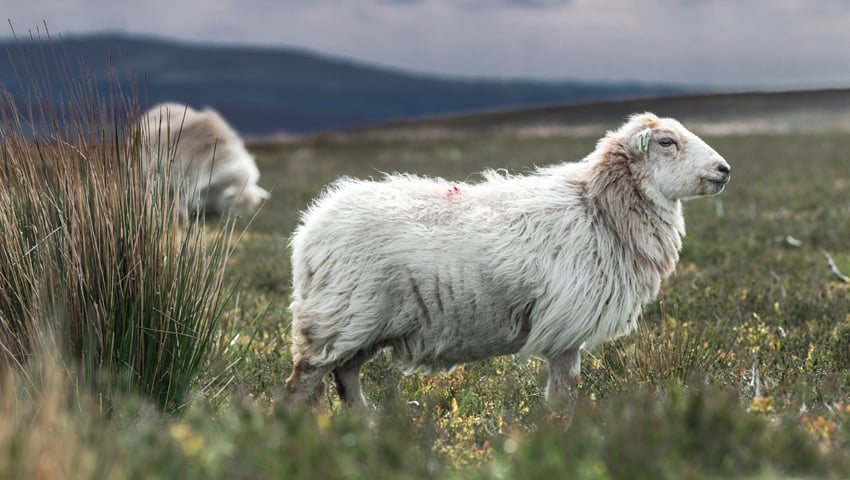An impact assessment commissioned by Welsh Government, examining the impact of its proposed Sustainable Farming Scheme, forecasts a 10.8% reduction in livestock numbers across Welsh agriculture. NFU Cymru has hit out at what it calls a “shocking scenario”, while the Nature Friendly Farming Network said that “less output doesn’t necessarily mean losses”.
The recently published Potential Economic Effects of the Sustainable Farming Scheme Phase 4 Universal Actions Modelling Results, carried out by ADAS, Pareto Consulting SRUC and University College Dublin, paints a bleak picture for Welsh farming.
The modelling predicts:
- A 122,200 reduction in Welsh livestock units, in effect a 10.8% reduction in Welsh livestock numbers
- An 11% cut in labour on Welsh farms – the equivalent of losing 5,500 jobs based on current employment levels on Welsh farms
- A £125.3m hit to output from the sector, and a loss of £199 million to farm business income (85%)
NFU Cymru President Aled Jones said, ““It is hugely concerning to read that Welsh Government’s own impact assessment illustrates such damaging consequences for the industry. There are also fundamental weaknesses within the report, not least that the wider impact on rural businesses and subsequent employment levels have not been modelled.
“It is vital that as part of the latest consultation feedback from farmers and rural businesses are listened to. Many of the proposals that led to the damaging economic impact assessment are still contained in this latest consultation. NFU Cymru has long warned of the impacts of some of the proposals contained within the Sustainable Farming Scheme (SFS) scheme outline – not least the 10% tree planting and habitat requirements – on the sector’s productivity and viability. Welsh Government must listen and ensure fundamental changes to the shape of the scheme are made to avoid the damage the independent report highlights.”
Rhys Evans, the Country Manager for the Nature Friendly Farming Network took a more nuanced view. He said, “Understandably, farmers will be concerned by these figures which paint a potentially bleak picture of the future. While a transition to the SFS will bring its challenges, less output doesn’t necessarily mean losses at the farm business level. This modelling fails to take into account emerging evidence that working with natural processes can increase profitability while maintaining or increasing levels of output. The modelling doesn’t take into account the important role that optional and collaborative actions in the scheme can play in supercharging farm business outcomes. In order to realise a more positive vision for the future, we need the Welsh Government to properly invest in schemes that support an ambitious farming transition in Wales including the fast tracked rollout of the optional and collaborative elements.”
However, the NFU Cymru president said, “Such a high and unacceptable level of reduction in on-farm labour, livestock numbers and farm business income, quite frankly, makes a mockery of Welsh Government naming this consultation ‘Keep Farmers Farming’. It is pure fallacy to suggest that these proposals are ‘Keeping Farmers Farming’ when the evidence published to date clearly shows that the SFS proposals will be so damaging for jobs and farming businesses in Wales.”
Commenting on NFU Cymru’s statement, Jon Parker, Director for Wales at the Food, Farming and Countryside Commission, said, “There’s a lot at play in the co-design of SFS and members of NFU have been questioning the narrative of Welsh Gov on this with their union leadership. It’s also really hard to consider the scheme with no numbers against the universal actions other than the protected, headline BPS in this year’s budget.
“In the round, I don’t think that SFS is being considered strongly enough in the context of how it will affect the rural economy and food system change per se. Welsh Gov have extremely divergent policies now in the pre and post farm gate sectors.”
Read the Welsh Government’s consultation documents and impact assessments
